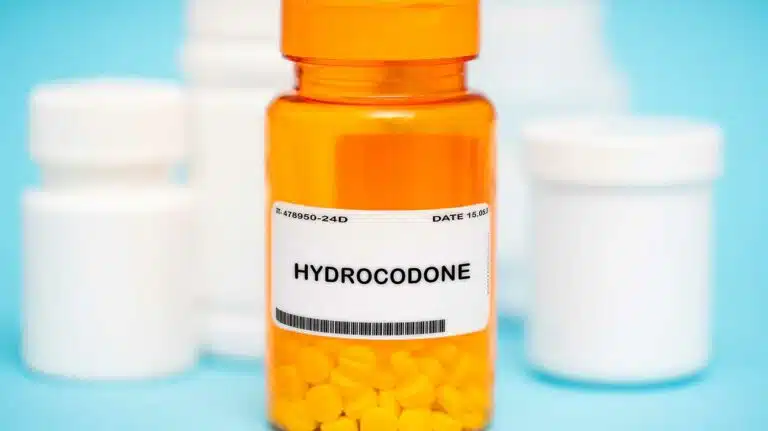Does Hydrocodone Expire?

Although experts recommend disposing of prescription drugs after their expiration date, the potency of a medication like hydrocodone can remain decades after the drug expiration date.
This is due, in part, to the active ingredients in certain medications that contain the properties needed to make the drug effective.
Does Hydrocodone Expire?
Hydrocodone, like many other medications, is stamped with an expiration date that’s generally one to five years after the drug was produced. However, hydrocodone may still be effective for many years, especially if the expired medication is stored in a refrigerator or a cold place.
Some drugs that contain nitroglycerin or tetracycline may expire and lose potency over time, unlike prescribed hydrocodone or some over-the-counter medications.
Expired Hydrocodone
Researchers Lee Cantrell, PharmD, and others completed a study which provided the information that hydrocodone, codeine, and acetaminophen retain 90 percent of their potency 28-40 years after the expiration date.
This information was provided by the FDA’s Shelf-Life Extension Program (SLEP) which studied the expiration dates of medications and resulted in a shelf-life extension for some drugs.
Despite this, it is recommended by the U.S. Food and Drug Administration (FDA) to take your new prescription from your doctor as described to you and to dispose of the expired medicine. In fact, there are a number of ways to dispose of expired medications.
How To Correctly Dispose Of Expired Hydrocodone
In order for the potency of medication to remain, it should be stored in a medicine cabinet or in a cool place such as a refrigerator. For those seeking to dispose of their hydrocodone or other expired medications, consider the various options.
Sealed Bag In Trash
One of the easier options of discarding prescription medications is to simply throw them in the trash. However, those who participate in drug abuse may turn to dumpsters or other trash piles to find drugs.
In order to safely dispose of expired medication or unused prescription drugs, the FDA recommends placing the meds in a sealable bag. Inside the bag with the medications, add coffee grounds, kitty litter, or dirt.
By concealing the drugs in this manner, not only can you possibly prevent drug abuse, but also help to avoid any children or pets inadvertently ingesting any drugs.
Drug Take Back Programs
Instead of tossing your medications in the trash, you can consider finding a local Drug Take Back program. In fact, there is a National Prescription Drug Take Back Day each year.
Contact your local police department to find more information about safely disposing of unused or expired drugs.
Risks Of Hydrocodone Abuse
Hydrocodone is an opioid prescription drug used to help treat severe pain, which means it’s classified as a Schedule II controlled substance by Drug Enforcement Administration (DEA).
Hydrocodone products, including hydrocodone that’s combined with acetaminophen (brand name Tylenol) or ibuprofen (brand names Advil or Motrin), can all be abused for their euphoric side effects.
Polydrug Use & Interactions
Those who take hydrocodone should avoid taking other opioid medications to prevent any drug interactions. Since hydrocodone is a central nervous system (CNS) depressant, those should be avoided as well.
Some of the substances to avoid while taking hydrocodone include:
- certain supplements or vitamins
- antihistamines
- alcohol
- benzodiazepines
- drugs containing amphetamine
- barbiturates
- other pain relievers such as codeine
Hydrocodone Overdose
Those who combine medications or abuse hydrocodone may have a risk of developing a life-threatening opioid overdose.
Symptoms of overdose may include:
- trouble breathing
- seizures
- respiratory depression
- cold or clammy skin
- coma
If you or a loved one struggle with prescription opioid abuse, healthcare options are available. To learn more about inpatient and outpatient treatment programs, please contact us today.
Written by Ark Behavioral Health Editorial Team
©2024 Ark National Holdings, LLC. | All Rights Reserved.
This page does not provide medical advice.
African Health Studies - Drug Expiry Debate: The Myth and the Reality
Drug Enforcement Administration - Hydrocodone
Food and Drug Administration - Where and How to Dispose of Unused Medicines
National Library of Medicine: MedlinePlus - Hydrocodone
National Library of Medicine: MedlinePlus - Hydrocodone Combination Products

Questions About Treatment?
Ark Behavioral Health offers 100% confidential substance abuse assessment and treatment placement tailored to your individual needs. Achieve long-term recovery.
100% confidential. We respect your privacy.
Prefer Texting?
Our friendly support team is here to chat 24/7. Opt out any time.







 Learn More
Learn More








